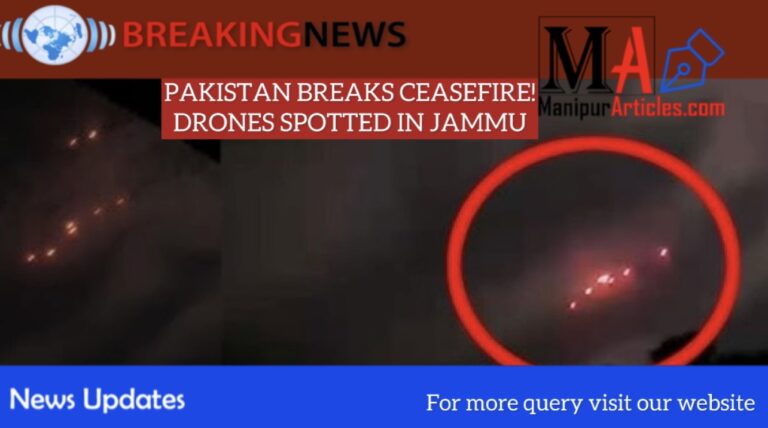Manipur Modern College Students Protest Land Dispute with Private Parties
In Imphal, students of Modern College are protesting against a land demarcation process involving private parties, aiming to safeguard their college’s property.
The Genesis of the Land Dispute
Modern College, a prominent educational institution in Imphal East, has found itself at the center of a contentious land dispute. The crux of the issue lies in the planned demarcation of the college’s boundaries, which, according to the students, encroaches upon the institution’s rightful property. This demarcation process, involving private entities, has raised alarms among the student body, prompting them to take a stand to protect their campus.
The Student-Led Protests: A Display of Unity and Determination
In response to the proposed demarcation, students organized a sit-in protest at the college premises. This peaceful demonstration aimed to voice their concerns and draw attention to the potential loss of college land. The students’ actions underscore their deep connection to their institution and their willingness to safeguard its interests.
Historical Context: Land Disputes in Educational Institutions
Land disputes involving educational institutions are not uncommon, especially in regions where rapid urbanization and private development intersect with public properties. Such conflicts often arise due to ambiguous land records, overlapping claims, or unauthorized encroachments. In the case of Modern College, the involvement of private parties in the demarcation process has added a layer of complexity, fueling apprehensions among the stakeholders.
The Role of Authorities: Navigating the Demarcation Process
The demarcation of land boundaries is a critical administrative process, typically overseen by government authorities to ensure clarity and prevent disputes. However, when private parties are involved, as alleged in this scenario, questions arise about the transparency and fairness of the process. The students’ protests highlight the need for authorities to conduct the demarcation with utmost impartiality, ensuring that the interests of public institutions like Modern College are not compromised.
Implications for the Academic Community
The ongoing dispute has broader implications for the academic community. Land is a vital asset for educational institutions, providing space for infrastructure, extracurricular activities, and future expansion. Any encroachment or loss of land can hinder the institution’s ability to serve its students effectively. Moreover, such disputes can disrupt the academic environment, diverting attention from educational pursuits to administrative and legal battles.
A Call for Resolution: Ensuring Fairness and Transparency
Resolving this dispute necessitates a collaborative approach involving all stakeholders—students, college administration, government authorities, and the private parties in question. Transparent communication, thorough investigation of land records, and adherence to legal protocols are essential steps to ensure a fair outcome. Protecting the interests of educational institutions like Modern College is paramount, as they play a crucial role in shaping the future of the community.
FAQs
- What prompted the students of Modern College to protest?
- The students are protesting against a land demarcation process involving private parties, which they believe encroaches upon the college’s property.
- How are the students expressing their concerns?
- They organized a peaceful sit-in protest at the college premises to draw attention to the potential loss of college land.
- Why is land important for educational institutions?
- Land provides space for infrastructure, extracurricular activities, and future expansion, all of which are vital for the institution’s effective functioning.
- What are the potential consequences of losing college land?
- Loss of land can hinder the institution’s ability to serve its students effectively and may disrupt the academic environment.
- What steps are necessary to resolve the dispute?
- A collaborative approach involving transparent communication, thorough investigation of land records, and adherence to legal protocols is essential to ensure a fair outcome.





